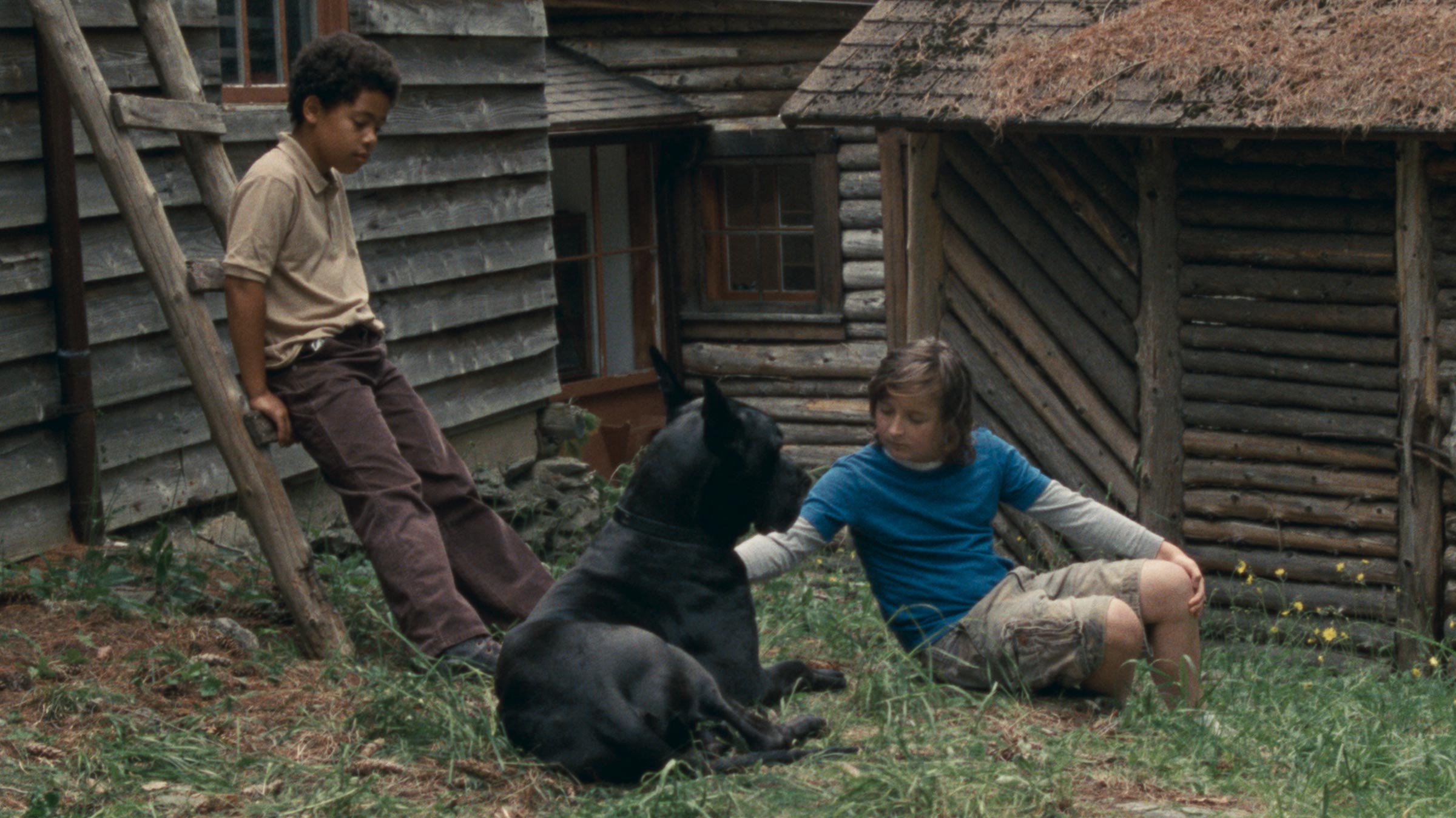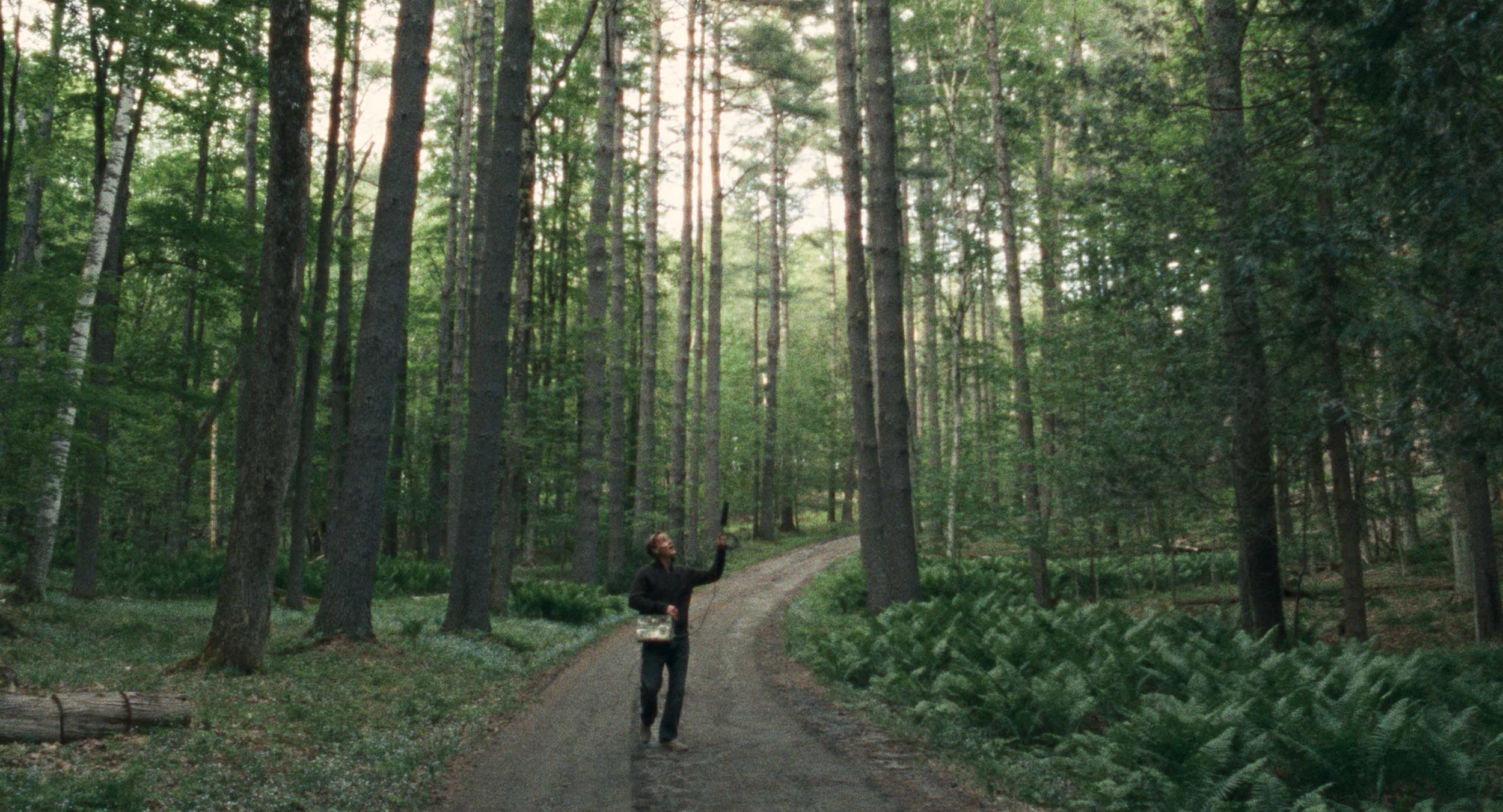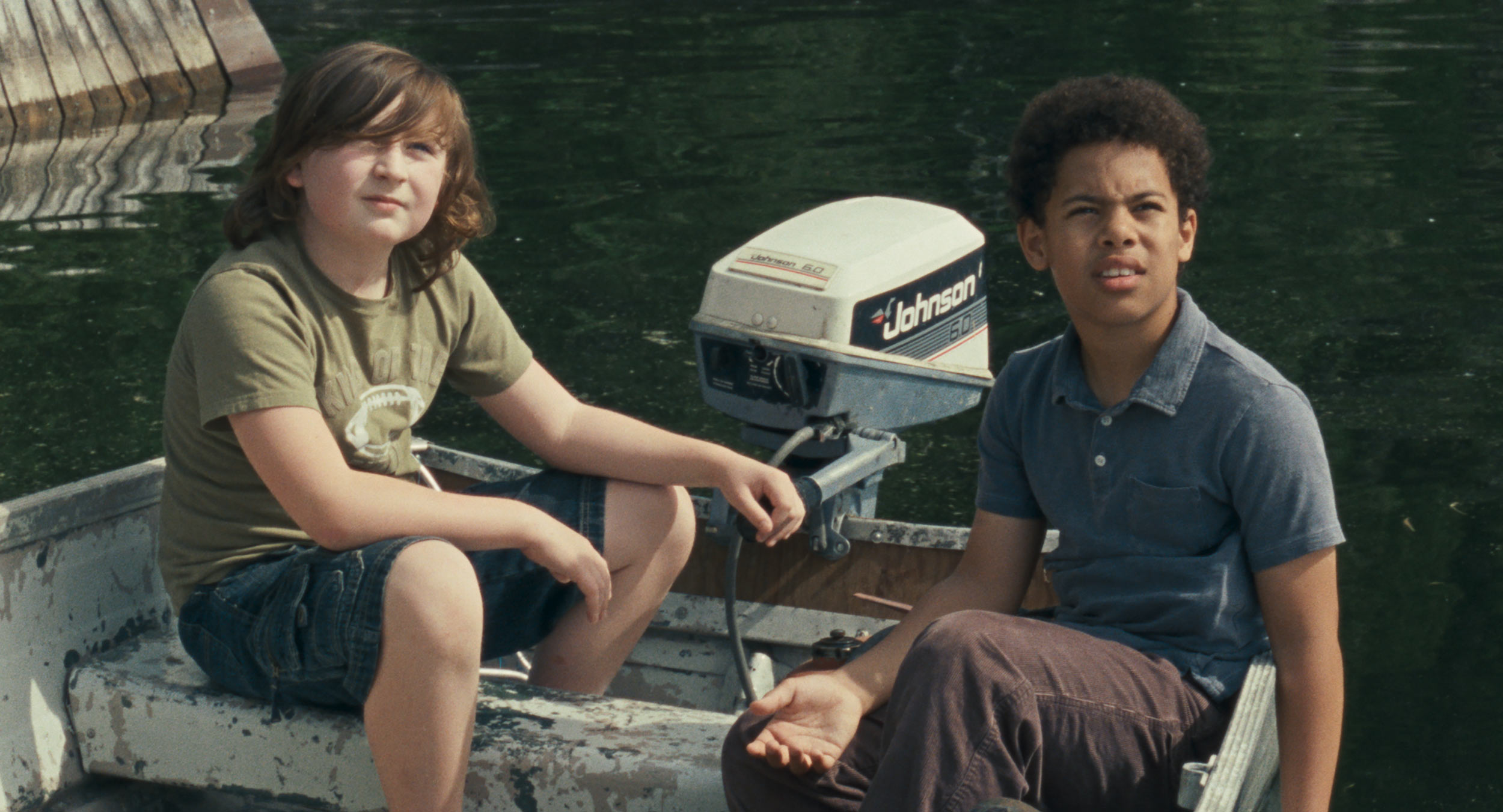The Canadian director unpacks the many dimensions to his Werner Herzog Award-winning feature film
Harley Chamandy’s debut film Allen Sunshine plunges viewers into a meditative journey of transformation, nostalgia, and existential exploration. Set in a lakeside thatch of the woods in Canada, the film centers themes of memory, identity, and the fluidity of reality. It tells the story of Allen Sunshine, a successful music producer, who trades fame for a bucolic yet solitary life in a cabin after the death of his wife, a singer named Eloise Hays whom he used to manage. During one of his usual morning fishing trips on the lake, he meets Kevin and Dustin, two children familiar with his music who invite him to fish with them. Allen and the boys become an unlikely trio despite his summer-long avoidance of human contact, forming a real bond that guides Allen toward a rediscovery of his inner child. His new sense of self emerges innocently, unfolding as his adventures with Kevin and Dustin guide him through mourning his wife.
Celebrity and solitude, past and present, aging and youth: Chamandy arranges these themes to show how Allen processes grief. The director’s skill has even been recognized by the Werner Herzog Foundation, which honored Allen Sunshine with the Werner Herzog Film Award of 2024, making Chamandy the youngest filmmaker to ever earn the accolade.
Document sits down with the director to discuss the quiet beauty of life’s subtle, often unspoken moments, and how they’re best captured on screen.
Maya Kotomori: The sight and sound of water plays a prevalent role in Allen Sunshine. What is your relationship to water both personally and as a director?
Harley Chamandy: When I think of water, I think of my grandfather who taught me how to swim by throwing me in the water as a baby. He emigrated from Egypt to Canada with my mom when she was a young girl. He eventually opened a deli, although there were a lot of struggles and obstacles coming to a new country. Their shared love and passion for music is where I think my creative side comes from. My grandfather composes the most beautiful piano music and my mother is a singer as well. So to get back to the question: my grandfather represents water. He is the source. When you’re filming nature, you’re filming god. Your job is to heighten the beauty.
Maya: Celebrity exists almost as a ghost, with Allen’s late wife. Why did you make it his motivation to escape his own celebrity as a legendary producer?
Harley: The concept of reality was a major theme I wanted to explore with Allen Sunshine. I know it might sound abstract, but I was thinking about the idea that we’re not permanently bound to one reality. Allen’s journey embodies this concept. He’s lived in the intoxicating ‘reality’ of success, fame, money, and celebrity, which can change how you see the world. But he chooses to leave that behind in search of a different kind of truth, a new ‘reality.’ We see this major label executive retreating to a cabin in the woods to create ambient electronic music with little commercial appeal. These two versions of Allen—the label executive and the solitary electronic musician—exist in two different realities. And his brother’s obsession with material happiness and Allen’s rejection of that represent two contrasting realities. It’s all about the choice to step out of one world and into another.
Maya: The two children feel like an omen, but also like sages: they teach Allen as much as he teaches them. What is it about the childlike spirit that can be so wonderful in teaching an old dog new tricks, so to speak?
Harley: I’m really passionate about infusing optimism into my films. I feel like there’s too much cynicism and nihilism in art made by and for young people these days. Optimism is something you practice. And who embodies optimism better than children? They’re the most curious, the most naive about the world in the best possible way. I believe we have so much to learn from children. If we could all maintain that level of curiosity throughout our lives, I think we’d be happier as people. In the film, the children serve as a reminder to Allen of what truly makes life worth living. They show him a new reality—one he’d long forgotten due to his past experiences. It’s about rediscovering that childlike wonder and openness to the world.
Maya: The soundscape is really impressive, who composed it? Was the score a key element in your screenwriting, or something that came after?
Harley: The music was composed by Ethan Rose, an artist I’ve admired since high school when I first heard his album Ceiling Songs. He’s worked on films like Paranoid Park by Gus Van Sant and Showing Up by Kelly Reichardt. I knew from the start that the film needed ambient electronic music because, to me, it’s the most introspective form of music. During the writing process, I exclusively listened to Ethan’s music. In a way, I was manifesting working with him. We had many Zoom calls where he showed me around his studio in Portland. A lot of Allen’s creative process in the film is actually based on Ethan’s real-life methods. Ethan’s Ceiling Songs and Ye’s Yeezus are probably the only two albums that have ever deeply moved me on a profound level.
Maya: How did you begin making and writing films? What’s your relationship to the medium? How is Allen Sunshine an extension of that?
Harley: My journey in film actually began in front of the camera. I started as a child actor, with my mom driving me to auditions after school. My first real role was in a Syfy network B movie. But I quickly realized my true passion was behind the camera. I went on to make several short films, some of which I’m still extremely proud of. Allen Sunshine represents my complete vision of what I believe great cinema should be. I wouldn’t change a single thing about it. Every detail in the film, from the breed of dog to the texture of the actors’ pants, is there intentionally. I want to make humanistic movies. I’m more interested in evoking emotions and exploring the human experience than telling straightforward stories.
Maya: The iridescent fish named Gertrude. Is she supposed to symbolize something, or is she just a random moment of beauty in the film? It feels like the interchangeability of coincidence and symbolism is a central theme, can you talk a bit about that?
Harley: Werner Herzog has this great quote where someone asked him if the chicken at the end of Stroszek symbolizes something. He replied, ‘It’s a symbolism. For what? I do not know.’ That’s kind of how I felt about Gertrude the fish initially. But after watching the film countless times, I’ve started to see parallels with David Lynch’s book Catching the Big Fish. Once Allen catches this big, iridescent fish, his way of thinking begins to shift. He becomes more receptive and open to what the world is offering him. So while I didn’t set out with a specific symbolism in mind, I think the fish has come to represent this moment of change for Allen. It’s the point where he starts to embrace a new way of seeing the world. In a way, this reflects how symbols can evolve and take on meaning even for the creator over time.
On December 6, Chamandy will be honored at the awards ceremony for the Werner Herzog Film Award for 2024 at the Munich Cinematheque (Filmmuseum München), followed by a Q+A with Herzog himself. You can stream the award-winning film Allen Sunshine on Apple TV here.











